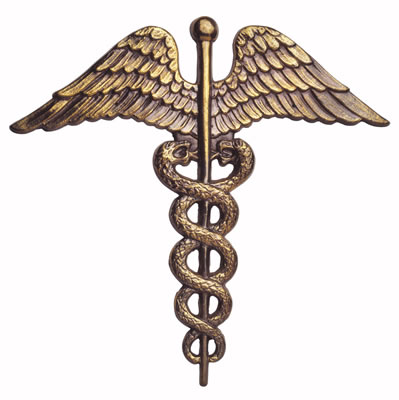 OMA partners with World Obesity Federation for action initiative
Obesity clinicians from across the pond are launching an action initiative to address the global obesity crisis. The World Obesity Federation (WOF) developed the action initiative to promote a comprehensive view of treating obesity and realistic goals to support change. OMA is one of the founding advocates for this initiative, and we will work with WOF and other partnering organizations to create the largest possible positive impact by sharing resources, developing programs, and educating health care providers about clinical obesity treatment. |

OMA member's letter published in American Journal of Medicine
The American Journal of Medicine recently published a letter by OMA member and OTF board member, Dr. Amy Articolo. Dr. Articolo wrote the letter in response to an editorial published earlier this year titled, "A Candid Discussion of Obesity," wherein the author blames the obesity epidemic on people "eating too much." Dr. Articolo's response justifies why obesity is a disease and should be treated as such. Read her full response in the October issue of the journal. |
 Help our membership grow
Our membership has been growing steadily over the past few years, and we need your help to keep that momentum going. Share with your friends and colleagues your experiences being a member of OMA and the opportunities you've had to interact with other members. Tell them about your favorite memories from our live conferences or how being involved with OMA has impacted your practice. Refer your colleagues and friends to us using our online referral form. Let's work together to grow our membership and expand the field of obesity medicine! |
 ABOM item writing committee seeks new members
Do you want to help shape the future of obesity medicine? Are you interested in raising the bar for all physicians working in this important specialty? If you answered "yes," then the American Board of Obesity Medicine (ABOM) item writing committee is looking for you. The item writing committee oversees the creation of new items for the bank of examination questions. Committee members are provided with annual item-writing training in coordination with the National Board of Medical Examiners (NBME), ABOM's test administration partner. To apply to join the item writing committee, complete the application form; contact ABOM at info@abom.org to learn more. Please note: To maintain absolute confidentiality and separation between the examination writers and all preparatory or review courses for this examination, item writing committee members are not allowed to teach, lecture, provide seminars, assist, make comment, or in any way participate in such courses while serving the board. |
 |
 Department of Labor releases FAQs about ACA implementation, adds question about excluding obesity
Question six of the recently released FAQs for implementing the Affordable Care Act (ACA) asks if it's permissible for non-grandfathered health plans to exclude weight-management services for adult obesity. The answer is no -- "non-grandfathered plans and issuers must cover, without cost sharing, screening for obesity in adults." Leaders from the Obesity Care Continuum worked closely with staff from the Department of Health and Human Services (HHS) to ensure this question was included. |
Obesity Treatment Foundation
|
 As holidays approach, support OTF while you shop
If you use Amazon when you shop online, you can set it up so Amazon contributes to the Obesity Treatment Foundation (OTF) with every purchase. Amazon's charitable program, called AmazonSmile, uses your same login and account information. When you use AmazonSmile, Amazon will donate 0.5% of your purchase to a charitable organization, such as the Obesity Treatment Foundation. Log in to AmazonSmile and start supporting OTF this holiday season. |
 The Obesity Treatment Foundation helps keep you up to date on current obesity research. Each week, OTF publishes a brief overview of three recent studies so you can be in the know, even during your busiest days. Click the links below to view the full articles, and consider supporting OTF, so we can continue to provide you with updates. The Obesity Treatment Foundation helps keep you up to date on current obesity research. Each week, OTF publishes a brief overview of three recent studies so you can be in the know, even during your busiest days. Click the links below to view the full articles, and consider supporting OTF, so we can continue to provide you with updates. |
|
|
*These events are hosted by organizations other than OMA. Contact the organization directly for details.
|
Answered by Dr. Amy Articolo.
Q: As a fee-based weight-loss clinic, where do most of your patients come from? A: Our patients are referred to us by physicians, "word of mouth" of other patients, our website, the OMA website*, and some of our marketing with a local magazine. *For more information about being listed on the obesity medicine clinician database, contact the membership department.
|
|
Executive Director
Sponsorships and Exhibits Manager
Operations Manager
Education Coordinator
Communication Manager
Executive Director of the Obesity Treatment Foundation
|
|
101 University Blvd., Suite 330
Denver, CO 80206
|
|
 |
|
Protein intake and lean body mass preservation during energy intake restriction in overweight older adults
Backx, E. M. P., et al. Int'l J Obesity, 2015.
The idea that high dietary protein intake will help to preserve lean muscle mass during weight loss has not been thoroughly explored in older adults. A study was conducted to investigate the impact of an increase in dietary protein intake on the preservation of muscle mass during 12 weeks of 25 percent energy restriction in older adults with excess weight (63±5 years). Participants consumed a controlled diet with either 1.7 grams or 0.9 grams per kilogram of body weight per day of protein. The study found that body weight declined similarly in both groups, and DEXA scans showed that lean body mass also declined in both groups, with no difference between the high and normal protein diets. Leg strength also decreased following the intervention in both groups. This study suggests that in older adults, higher habitual protein intake may not help to preserve lean body mass or strength during energy restriction compared to normal protein intake. View article
|
Is consuming yogurt associated with weight-management outcomes? Results from a systematic review
Eales, J., et al. Int'l J Obesity, 2015.
This systematic review of 22 publications examined the role of yogurt consumption on body weight. The analysis found that yogurt consumption is associated with lower body mass index (BMI) and body weight, less weight gain, smaller waist circumference, and lower overall body fat. In controlled trials, there appears to be a modest weight-loss effect associated with consuming yogurt, and it may be most beneficial for maintenance of weight loss and overall management of obesity. A cause and effect relationship has yet to be proven, but given the strong epidemiological evidence, the authors suggest that yogurt could be a practical food option for individuals to consume to help with body weight regulation. View article
|
Pharmacological management of obesity
Apovian, C. M., et al. J Clin Endocrinol Metab, 2015.
Earlier this year, clinical practice guidelines for the pharmacological management of obesity were published. These guidelines support the notion that obesity is a chronic disease that requires long-term medical management. Weight loss is associated with a change in physiology, and in order to promote long-term weight maintenance, the authors suggest using approved weight-loss medications (over no pharmacological therapy) to improve comorbidities and increase adherence to behavior changes in the long term. They suggest that if a patient's response to an anti-obesity medication is effective (weight loss ≥ 5 percent of body weight at three months) and safe, the medication be continued. These guidelines begin to more accurately reflect what obesity medicine specialists practice with their patients. View article
|
|
|
|
The Obesity Medicine Association and the Obesity Treatment Foundation thank our 2015 Corporate Advisory Council members for their continuous support.
|
© 2015 Obesity Medicine Association. All rights reserved. Materials may not be reproduced, redistributed or translated without written permission. Advertising disclaimer: Under a policy approved by the OMA executive committee and exhibitor/advertiser review committee, commercial companies may apply to advertise in OMA publications. Approval does not imply endorsement or official recognition of particular products or services.
|
|
|
|